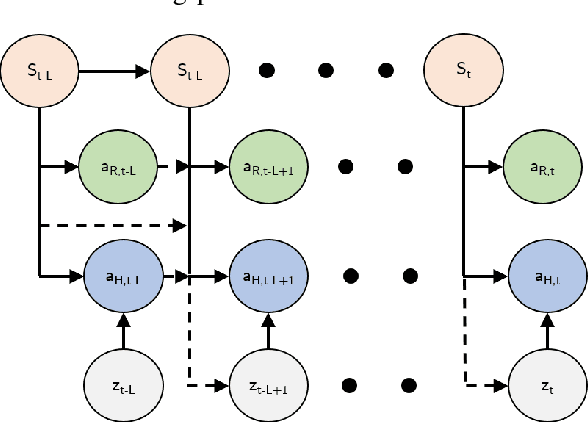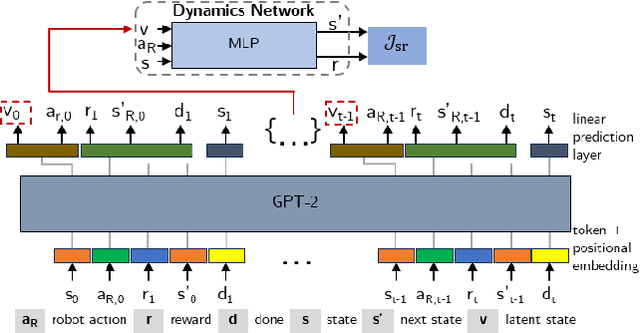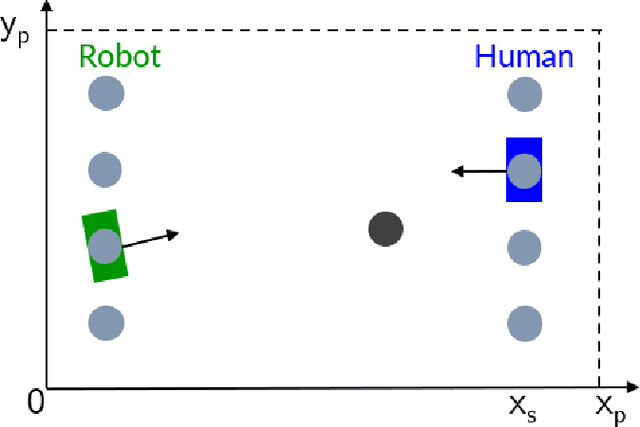A behavioural transformer for effective collaboration between a robot and a non-stationary human
Paper and Code
Jul 25, 2023



A key challenge in human-robot collaboration is the non-stationarity created by humans due to changes in their behaviour. This alters environmental transitions and hinders human-robot collaboration. We propose a principled meta-learning framework to explore how robots could better predict human behaviour, and thereby deal with issues of non-stationarity. On the basis of this framework, we developed Behaviour-Transform (BeTrans). BeTrans is a conditional transformer that enables a robot agent to adapt quickly to new human agents with non-stationary behaviours, due to its notable performance with sequential data. We trained BeTrans on simulated human agents with different systematic biases in collaborative settings. We used an original customisable environment to show that BeTrans effectively collaborates with simulated human agents and adapts faster to non-stationary simulated human agents than SOTA techniques.
 Add to Chrome
Add to Chrome Add to Firefox
Add to Firefox Add to Edge
Add to Edge